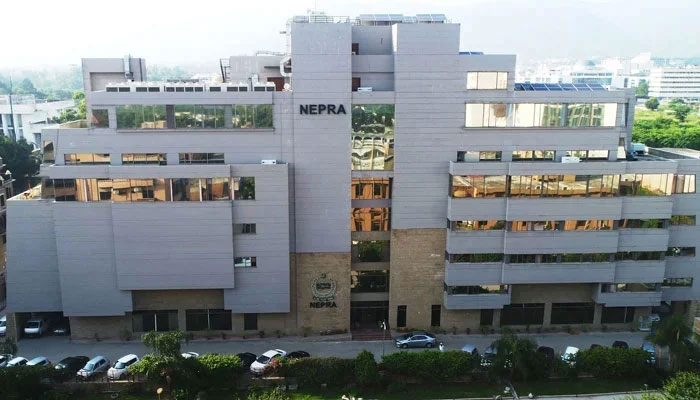Nepra issues notice to K-Electric over net-metering violation
Decision follows KE's failure to provide detailed information on rejected net-metering cases due to system overloads
ISLAMABAD: The National Electric Power Regulatory Authority (Nepra) has issued a show cause notice to K-Electric (KE) over repeated non-compliance with directives regarding net-metering applications.
The decision, announced on Wednesday, follows KE’s failure to provide detailed information on rejected net-metering cases due to system overloads, a violation that Nepra deems inconsistent with its regulations and the Nepra Act.
The issue arose after numerous net-metering applications were reportedly declined by KE, citing the overloading of its common distribution system and Pole-Mounted Transformers (PMTs).
Nepra initially directed KE to submit specific data regarding these rejections in May 2024, but the utility provider requested an extension and failed to meet compliance standards within the stipulated timeline.
Following an explanation letter from Nepra in July, KE provided partial information, stating that net-metering requests exceeding 80 per cent of transformer capacity required upgrades at the applicants’ expense.
However, NEPRA deemed KE’s submission unsatisfactory, noting that it did not adhere to the requirements for transparency and timely consumer access to net-metering services. The Authority has now formally determined KE’s response inadequate, issuing the show cause notice under Nepra’s fine regulations. The notice compels KE to address the non-compliance and submit a comprehensive explanation for its actions regarding the handling of consumer applications for net-metering, a key program supporting renewable energy adoption in Pakistan. K-Electric has yet to respond to the notice.
-
 Costco $20 Rule Explained As Employee Pay Climbs Across North America
Costco $20 Rule Explained As Employee Pay Climbs Across North America -
 Strange Incident Happened At Nancy Guthrie's Home On Abduction's 10th Day
Strange Incident Happened At Nancy Guthrie's Home On Abduction's 10th Day -
 Tumbler Ridge School Lockdown Underway As RCMP Investigate School Shooting
Tumbler Ridge School Lockdown Underway As RCMP Investigate School Shooting -
 Britney Spears Quietly Parts Ways With Her Music Catalog: Report
Britney Spears Quietly Parts Ways With Her Music Catalog: Report -
 Princess Diana Bodyguard Suspected ‘she Could Die’: Here’s How
Princess Diana Bodyguard Suspected ‘she Could Die’: Here’s How -
 King Charles Makes It ‘absolutely Clear’ He Wants To Solve Royal Crisis
King Charles Makes It ‘absolutely Clear’ He Wants To Solve Royal Crisis -
 Royal Family Warned To ‘have Answers’ Amid Weak Standing
Royal Family Warned To ‘have Answers’ Amid Weak Standing -
 Marc Anthony On Why Bad Bunny’s Super Bowl Show Mattered
Marc Anthony On Why Bad Bunny’s Super Bowl Show Mattered -
 Kid Rock Gets Honest About Bad Bunny’s Performance At Super Bowl
Kid Rock Gets Honest About Bad Bunny’s Performance At Super Bowl -
 Kylie Jenner Reveals Real Story Behind Her 'The Moment' Casting
Kylie Jenner Reveals Real Story Behind Her 'The Moment' Casting -
 Jaafar Jackson Breaks Silence On Becoming Michael Jackson
Jaafar Jackson Breaks Silence On Becoming Michael Jackson -
 Eva Mendes Reveals One Costar She Envied Ryan Gosling Over
Eva Mendes Reveals One Costar She Envied Ryan Gosling Over -
 Halsey Marks Fiancé Avan Jogia's Birthday With Emotional Note
Halsey Marks Fiancé Avan Jogia's Birthday With Emotional Note -
 China: Stunning Drone Show Lights Up Night Sky Ahead Of Spring Festival 2026
China: Stunning Drone Show Lights Up Night Sky Ahead Of Spring Festival 2026 -
 Andrew's Epstein Scandal: Will King Charles Abdicate Following King Edward's Footsteps?
Andrew's Epstein Scandal: Will King Charles Abdicate Following King Edward's Footsteps? -
 Billy Joel Leaves Loved Ones Worried With His 'dangerous' Comeback
Billy Joel Leaves Loved Ones Worried With His 'dangerous' Comeback




